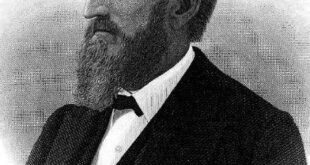The Origin and Evolution of Memorial Day: Honoring the Dead and the Power of Forgiveness
Memorial Day, observed on May 31, is a national holiday in the United States that honors its military dead. The holiday originated in the former Confederate States in 1866 and was adopted by the entire country in 1868. Gen. John A. Logan, who led the largest Union veterans’ fraternity at the time, the Grand Army of the Republic, is credited with originating the holiday, but he acknowledged its genesis among the Union’s former enemies. In the years following the Civil War, Logan saw the need for a day to remember and honor the sacrifices of soldiers on both sides.
The first Memorial Day observances were held in Columbus, Georgia, in 1866, and featured a hallmark of the holiday that helped spread awareness and admiration throughout the North: many Southern participants, especially women, decorated the graves of Confederate soldiers as well as those of their former enemies who fought for the Union. The generosity and magnanimous deeds of the Southern women were praised in newspapers across the North, and a poem titled “The Blue and the Gray” by Northern judge, academic, and poet Francis Miles Finch also helped extend a full pardon to the South.
Finch’s poem became part of the American literary canon and was widely published in books, magazines, and newspapers across the country. School children were required to memorize it, and it helped make the Southern Memorial Day holiday a familiar phenomenon throughout the reunited country by the end of the 19th century. When Logan’s order establishing Memorial Day was published in various newspapers in May 1868, Finch’s poem was sometimes appended to the order.
Northerners also decided to adopt the Southern custom of “burying the hatchet” and extend an olive branch to their former foes. Union veterans in Philadelphia explained their intentions in a letter to the Philadelphia Evening Telegraph in 1869, stating that they would honor the graves of Confederate soldiers as brave men, wishing to bury forever the harsh feelings engendered by the war. Other reports of reciprocal magnanimity circulated in the North, including the gesture of a 10-year-old girl who sent a wreath of flowers to the overseer of the holiday, requesting that it be placed on a rebel soldier’s grave.
The early evolution of Memorial Day was a manifestation of President Abraham Lincoln’s hope for reconciliation between North and South. The holiday’s origin and growth demonstrate the power of forgiveness, as well as the need to honor the sacrifice of soldiers from both sides of the Civil War.
 Mind Uncharted Explore. Discover. Learn.
Mind Uncharted Explore. Discover. Learn.




